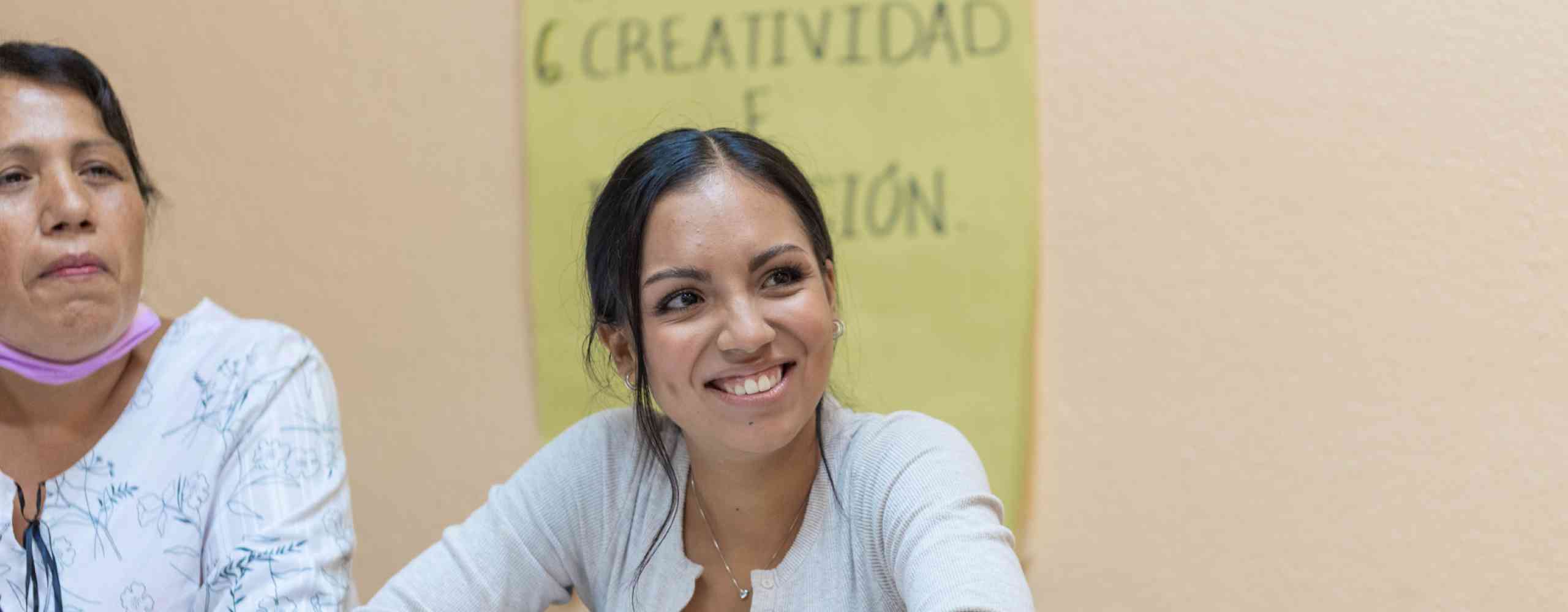

All young people need to be plugged into resources, supportive relationships and opportunities that enhance their well-being and help them thrive as adults. One in four young adults aged 16-24—approximately 350 million globally—are seeking connection to education and dignified work opportunities. However, many lack access to these resources and, instead, face structural barriers such as inadequate public transport, lack of childcare and geographical disparities, which act as major obstacles to employment. This is particularly true for marginalized groups including Black, Indigenous, and People of Color (BIPOC), women, LGBTQI+ individuals, young parents and youth in underinvested communities. Collectively known as Opportunity Youth, these young people need support to power their growth and success.
The Conrad N. Hilton Foundation’s Opportunity Youth Initiative believes in the power and potential of all young people and offers young people in our focus geographies access to education, skills training and comprehensive support, helping them build promising careers that support them and their families to thrive. Currently, our grantmaking actively supports Opportunity Youth initiatives in the cities of New Orleans and Los Angeles in the U.S., Mexico City, Mexico, and Mombasa, Kenya.

Our vision is to empower young people from disadvantaged backgrounds to achieve self-sufficiency. We do this by providing access to skills-based training and personal development, leading to meaningful, well-paying careers.
Create employment and educational opportunities for youth facing systemic barriers, especially Black, Indigenous, and People of Color (BIPOC), women, LGBTQI+ individuals, and young parents.
Enrich skills and workforce training, including comprehensive wrap-around supports, to promote job placement.
Raise awareness of the positive impact that comprehensive support services, like childcare and public transportation, have on youth, employers and communities.
Promote the valuable contributions of young adults as employees and entrepreneurs.
Incentivize employers to adopt fair hiring practices, build inclusive workplaces and create more positions for youth.
Strengthen advocacy and global coalitions for policy change.
Promote positive narratives about youth, especially young people of color, to shift negative perceptions.
Collect and share data for informed policymaking and funding decisions regarding Opportunity Youth.
Amplify youth voices to help reform narratives, shape youth-centered policies and strategies, and enable self-advocacy.


We partner with communities to help empower young people to embrace positive risks, self-discovery and future aspirations. By standing alongside them, we break down the barriers that block young people’s path to job opportunities and help guide them toward a purposeful future. Through the collaborative efforts of the Opportunity Youth Initiative, we aim to unlock the boundless potential of young people, helping them succeed in the workforce and secure their economic future. In doing so, we support their financial independence along with their physical, mental and emotional health.
S25 Results as of May 2025 – the initiative has contributed to the following results for Opportunity Youth in Los Angeles County, New Orleans, Mexico City and Mombasa:
The Hilton Foundation Opportunity Youth Initiative supports programs in New Orleans and Los Angeles in the U.S., Mexico City in Mexico, and Mombasa in Kenya.
